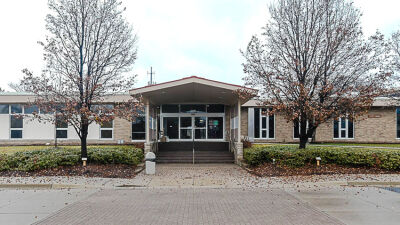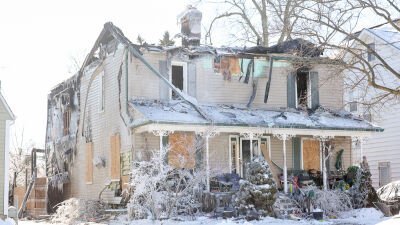MADISON HEIGHTS — The city of Madison Heights and several regional partners have been awarded $500,000 by the U.S. Department of Energy, which will fund the creation of a plan to reduce the energy footprint of their operations.
Madison Heights was the lead application in a partnership that also includes the cities of Ferndale and Oak Park, as well as the Lamphere Public Schools that serve part of Madison Heights. The Berkley-based sustainability think tank Energy Sciences helped Madison Heights research the grant application and reach out to partner communities.
The $500,000 awarded to them is part of a larger $27 million pool that the federal government is splitting between 40 partner teams through the Energy Future Grants program.
According to Melissa Marsh, the city manager of Madison Heights, the money will support the development of a regional decarbonization plan that will allow the city and its partners to share and leverage information, experiences and expertise. Their goal is to improve energy efficiency in their vehicle fleets, buildings and other infrastructure, reducing greenhouse gas emissions.
She said Madison Heights will also share its expertise in benchmark energy reporting and operational energy management, while Ferndale will bring valuable perspective as a city that has already established a citywide GHG inventory, a climate action plan and a “Downtown Zero Waste” initiative that aims to improve recycling rates.
Oak Park, meanwhile, has been focused on sustainability in its planning documents, and the Lamphere school district will benefit by assessing its aging building stock and developing a roadmap to improve the energy profile of each structure and their mechanical systems. This plan could include improvements to individual building exteriors and appropriately “right-size” the heating, cooling and ventilation systems of each learning space.
Quinn Wright, a member of the Madison Heights City Council, said the partnership has potential.
“Really, it’s about listening to the residents and what they want, which are programs that in the long term provide them tax savings, but that also in the long term improve both their environment and their overall quality of life,” Wright said. “Everyone wins with these types of programs. It’s no surprise we continue to be leaders and innovators on these types of initiatives.”
Initial grant applications were last fall. The grant was open to local, state or tribal government-led partnerships aimed at scaling strategies for energy efficiency and improved access to affordable clean energy.
Among the perks of the grant are financial assistance and technical assistance in designing and deploying each regional decarbonization plan.
“As the city manager, I reached out to our surrounding communities and school districts in Madison Heights to make the largest impact,” Marsh said via email, noting that interested participants were required to issue letters of support.
“The plan will help identify where each partner is at in their sustainability journey, and move us all forward to make the most impact for the region,” Marsh said. “We will be emphasizing GHG reduction by creating a citywide GHG inventory, building audits, fleet electrification and (electric vehicle) infrastructure integration. Actual projects will be identified during this process.”
Marsh added that as an Energy Future grantee in Round 1, the city will also be eligible to apply for Round 2 of the program, with $1 million available in funds for the project.
Marsh noted that Madison Heights is already ranked as a silver-level “Michigan Green City” through an assessment program by the Michigan Municipal League, which underscores the strength of the city’s current environmental practices.
The city recently received a grant of $22,500 from the Michigan Department of Environment, Great Lakes and Energy, which the city and Energy Sciences used to develop the city’s first sustainability master plan. The city also recently installed LED streetlights throughout the city, updated its mechanical systems at the Civic Center Complex, completed energy audits on its facilities and started tracking energy use for all municipal buildings.
Mark Bliss, the mayor pro tem of Madison Heights, said that he thinks it’s especially impressive that the Madison Heights-led coalition was one of only two partnerships in Michigan — the other being the city of Detroit — to receive the Energy Futures grant.
“There are two layers to this, I think. Obviously, ensuring our planet survives and is a hospitable place for my kids and their kids is important. But also, I think there’s a direct and immediate benefit to our residents where the cost of energy we’re generating becomes less, which means more in the budget to make other investments,” Bliss said. “I think that’s a win-win for us all.”
 Publication select ▼
Publication select ▼




























